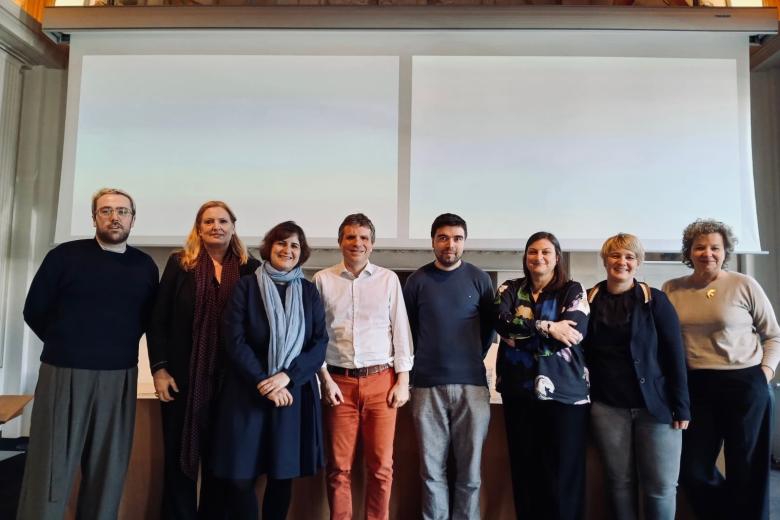PhD Candidate Doudou Huang Selected for fellowship programme at the International Court of Justice
Doudou Huang, PhD candidate at the Faculty of Law of Maastricht University, is selected to participate in the Judicial Fellowship Programme for 2024-2025. It is the first time the International Court of Justice selected a student from Maastricht University.
The ICJ Judicial Fellows Programme was established in 1999 and is the most competitive and coveted fellowship in international law. It enables participants to gain professional experience by working for the ICJ. It aims to improve the participants’ understanding of public international law in practice and the Court’s procedures by directly involving them in the Court’s activities. The Court generally selects 15 participants nominated by universities worldwide, and each Judicial Fellow will work under the supervision of a Member of the Court.
Dream place to go
Doudou is currently in the third year of her PhD at Maastricht University Faculty of Law. Her research focuses on the general application of transboundary harm rules in public international law. “My aspiration to work for the ICJ has been initiated ever since I was in the second year of my bachelor’s. During the studies for my bachelor’s in China and my master’s in Leiden, I participated in the Jessup Moot Court Competition. I was fascinated by how diverse yet rigorous international law interpretation can be and was stimulated by the impulsion to work on real international law cases one day. For a public international law student, the ICJ is a dream place to go,” Doudou says. “This will be a stone mark in my professional and academic life. To experience to work there, to see things from different perspectives… I feel very lucky and blessed for this opportunity.”
Fourteen other fellows from all over the world will join Doudou. “The fellows this year are a really diverse group. We consist of master’s graduates and PhD candidates with various cultural and educational backgrounds,” she says.
Broaden research
The internship starts in September 2024 and ends in June 2025. During these months, Doudou will work at the ICJ in The Hague every day. “The fellows will be working directly with their assigned judge. We can expect to conduct research on questions of law or fact concerning the pending cases, attend hearings, and draft memorandums.” She hopes that this inspiring environment, the challenging work, and new colleagues will help to broaden her research. “My current research, the application of transboundary harm rules, is relatively comprehensive. This internship can undoubtedly motivate me to follow other areas of law that I wasn’t familiar with,” she explains. “Another learning goal for me is to explore the correlation and the divergence between academic research and actual international legal practice. You witness the Court working, cases going… That’s different from reading a book.”
Also read
-
Andrés Caceres Solari on No room for Human Rights in Gaza and Ukraine: How the Law Legitimizes Urban Devastation
Pick Our Brains Session with Andres Caceres Solari

-
Teacher Information Points at UM
UM faculties now host Teacher Information Points (TIPs) that offer local, “just-in-time” and on-demand support for teaching staff. The aim is simple: to provide help that is closely connected to day-to-day teaching practice.

-
Globalisation & Law Network seminar with Damian Chalmers
On 4 November 2025, the Globalisation & Law Network had the honour of welcoming Prof. Damian Chalmers to discuss his paper “The EU’s Governing by Legal Shadows”.
